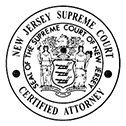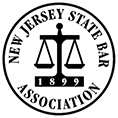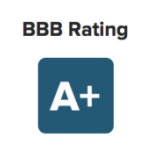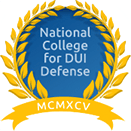Hillside NJ Obstructing the Administration of Law Defense Lawyer
When someone impairs, perverts, or prevents a police officer or public servant from performing official functions, they may be charged with obstructing the administration of law. A violation of this statute can result in a conviction for either a fourth degree crime, a felony, or a disorderly persons offense. If you or a loved one has been charged with obstructing, an experienced attorney can make all the difference in avoiding a conviction. Our firm, The Law Offices of Jonathan F. Marshall is comprised of highly experienced former prosecutors and defense attorneys that routinely appear in the municipal court of Hillside, Westfield, Union, Springfield, Elizabeth and just about everywhere else in Union County. A lawyer on our staff, which possesses over 100 years in practice combined, is prepared to review the facts of your case and outline a plan to avert a conviction. You can contact our Union Township Office anytime 24/7 at 908-272-1700 to speak to one of our lawyers. Initial consultations are free of charge.
What Constitutes Obstructing the Administration of Law?
As previously stated, the obstruction law, also referred to hindering, is contained at N.J.S.A. 2C:29-1. This statute provides as follows:
2C:29-1. Obstructing administration of law or other governmental function
a. A person commits an offense if he purposely obstructs, impairs or perverts the administration of law or other governmental function or prevents or attempts to prevent a public servant from lawfully performing an official function by means of flight, intimidation, force, violence, or physical interference or obstacle, or by means of any independently unlawful act. This section does not apply to failure to perform a legal duty other than an official duty, or any other means of avoiding compliance with law without affirmative interference with governmental functions.
b. An offense under this section is a crime of the fourth degree if the actor obstructs the detection or investigation of a crime or the prosecution of a person for a crime, otherwise it is a disorderly persons offense.
It is important to keep in mind that the language of this statute not only requires that the interference be purposeful (i.e. intended to prevent) but also that it be directed at the performance of the police officer or public official’s governmental function. In addition, the state must prove, among other things, that the defendant utilized intimidation, force, violence, physical interference or obstacle, or another unlawful act to accomplish his/her objective of preventing execution of the law enforcement function. Accordingly, refusing to answer questions from a police officer does not constitute obstruction as everyone has the right to remain silent. However, flight from a police officer attempting to make an arrest would suffice under 2C:29-1 because the actor is then purposely attempting to prevent performance of an official duty. And just as in the case of resisting arrest, obstructing the administration law applies even where an investigatory stop or arrest is unlawful or unconstitutional. Again, the law favors uniform submission rather than interference or resistance, as the latter is prone to cause an enhanced confrontation. Examples of instances where our courts have found obstruction of the administration of law include tearing down of notices posted by a town official in accordance with a court order, tampering with an inspector’s vehicle so as to prevent them from performing their duties, or engaging in disorderly conduct to impair a police officer from performing a valid patdown.
Material Elements That The Prosecutor Must Prove
There are basically three (3) fundamental elements that must be establish by the prosecutor in order to prove an obstructing offense. First, the prosecutor must demonstrate that the defendant obstructed, impaired or perverted the administration of law, a governmental function, or performance of official duties. Second, it must be established that the actor engaged in this conduct to obstruct or prevent. Third, the state must prove that the accused used intimidation, force, violence, physical interference or some other independently unlawful act in order to achieve their goal.
Grading Of Offense & Penalties
Typically, an obstruction charge will be a disorderly persons offense. However, the charge is enhanced to a fourth degree crime where an actor obstructs the detection or investigation of a crime or obstructs the prosecution of a person for a crime. A disorderly persons offense obstruction offense is punishable by up to six months in jail, a $1,000 fine and/or a period of community service. Fourth degree obstructing the administration of law results in up to eighteen (18) months in jail and a fine of up to $10,000.
Roselle Park NJ Obstructing the Administration of Law Attorneys
If you were arrested and charged with obstructing in Clark, Westfield, Roselle Park, Cranford, Kenilworth or another town in Union County, attorneys at our firm are here for you. We handle municipal court and Superior Court cases involving this offense all the time and have been for several decades now. A lawyer at the Law Offices of Jonathan F. Marshall is available at 908-272-1700 around the clock to discuss the circumstances of your obstructing the administration of law offense. Call us at 908-272-1700 for immediate assistance.












